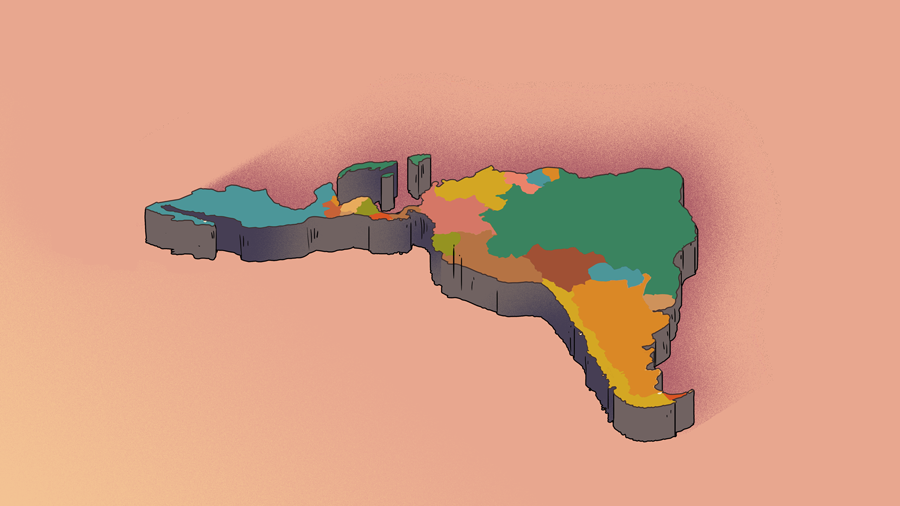By Bob Ma
In Europe, the U.S., and parts of Asia, people can get access to credit digitally or receive personalized recommendations on how to improve their credit scores. The fundamental driver of these and other digital financial services is the practice of “open banking,” which gives third-party financial service providers access to consumers’ financial data from banks through the use of APIs.
Subscribe to the Crunchbase Daily
This practice of open banking is forcing banks to become more transparent, efficient, and adaptive to financial technology innovation, and it is proving to be the most transformative technology revolution in banking since the industry went online 30 years ago.
Latin America: poised for financial technology transformation
While consumers in Europe and the U.S. may take fintech products enabled by open banking for granted, this is not yet the case for consumers in Latin America. LatAm has traditionally been a cash-based economy, with up to 85 percent of all transactions being handled in cash and nearly half of its population being unbanked.
However, this situation is about to change for several reasons. First, there is strong demand for digital transaction experiences among LatAm consumers, as is evidenced by LatAm being the world’s fastest growing region for mobile ecommerce. Second, the LatAm middle class has grown by more than 50 percent in the past decade, which, when combined with a high smartphone adoption rate of over 60 percent, has increased the demand for fintech products.
LatAm fintech and Open Banking API startups on the rise
Both startups and investors are seizing this opportunity. There has been a 5.5-fold increase in the number of LatAm fintech venture capital deals from 2013 to 2019, while the number of fintech startups in LatAm has grown from a handful to more than 1,200. The foundational way by which these startups operate is to connect to banks through open banking APIs.

Startups building open banking APIs are typically regionalized, because their success depends on developing partnerships with regional banks and fintech customers. The dominant player in this space has been U.S.-based Plaid, which Visa had planned to acquire for $5.3 billion (before the deal was scrapped amid antitrust scrutiny). Tink leads in the EU, and TrueLayer is a frontrunner in the UK and Australia. LatAm has a growing number of potential winners, including Belvo, Fintoc and Prometeo.
To become the “Plaid” of LatAm, these startups will need to accomplish four things.
First, they will need to quickly onboard a large number of banks and fintech clients in order to achieve economies of scale.
Second, they will have to establish a large geographic footprint across LatAm, as many of their clients will be operating across borders.
Third, they will need competitive pricing: the typical business model in this sector is to charge fintech clients for each API call alongside a flat subscription fee.
Fourth, they will need to be adept at product innovation. Given the nascency of open banking, startups can gain a competitive edge by discovering and bringing new use cases to market.
Regulatory frameworks are advancing
Regulators across Latin America are following the EU’s lead in encouraging open banking. Although not yet as developed as the EU’s Payment Services Directive 2 (PSD2) or the open banking APIs from banks such as Citibank and Wells Fargo in the U.S., open banking regulatory frameworks in LatAm are maturing. Mexico and Brazil have adopted open banking frameworks similar to those in the EU. Likewise, Chile, Colombia, Peru, Ecuador, and Uruguay are developing open banking frameworks.
Good news for consumers, banks, and fintechs
Besides making financial services cheaper, better, and easier to access for consumers by increasing industry competition, open banking also democratizes access to financial services for unbanked consumers. For example, in Mexico, Uber has partnered with BBVA bank to allow Uber’s unbanked drivers to open and use a digital bank account directly on the Uber app. This integration is enabled by BBVA’s open banking API.
Open banking also benefits banks and fintechs by pushing innovation forward and increasing the size of the market, as more consumers opt to use financial services who may otherwise remain unbanked or underbanked.
All of the pieces of the ecosystem needed to revolutionize financial services are coming together in Latin America, and there’s certainly pent-up demand. Open banking in LatAm is ready for take-off, and it’s a win-win for all involved.
Bob Ma is an investor at WIND Ventures, where he invests in energy, retail, and mobility startups. Prior to joining WIND, he was an investor at Soma Capital, where he invested venture capital globally across consumer and enterprise sectors.
Illustration: Li-Anne Dias.

Stay up to date with recent funding rounds, acquisitions, and more with the Crunchbase Daily.


![Illustration of a guy watering plants with a blocked hose - Global [Dom Guzman]](https://news.crunchbase.com/wp-content/uploads/quarterly-global-3-300x168.jpg)
67.1K Followers